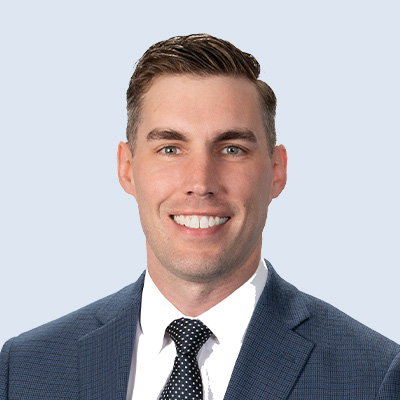Igor Uroic: So, Jake, as folks in the tech space are quickly moving across hardware or perpetual subscription cloud to even considering now consumption models. Tell me what we’re going to need more or maybe less CSMs in the future. What are your thoughts on that?
Jake Johnson: Well, it’s not that simple, Igor. Let’s dig in.
Igor Uroic: So why don’t we start with some introductions I’m Igor Uroic, principal with the Alexander Group, and I co-lead our Technology and Media practice area.
Jake Johnson: And I’m Jake Johnson, a principal out of our New York office. A member of the Tech practice as well.
Igor Uroic: All right, so then let’s get back to it. Jake, so you said it’s not that easy. Give me 1 or 2 counterpoints for what we see as what’s going to change.
Jake Johnson: Yeah. So as companies have kind of shifted from the, on-prem and the perpetual licenses to subscription now into the consumption models, I think it puts more emphasis on driving the revenue pull through and the usage pull through. Whereas before we could sell a contract and drive the adoption throughout and then we get to the renewal, but now we’ve got to make sure that they’re seeing the value realization. They’re using the product, they’re consuming it, and if they don’t, we really don’t have a basis for a good renewal or an upsell cross-sell later on. So, in my mind, it’s putting more emphasis on that post-sales motion and really than ever before.
Igor Uroic: So you’re saying that there’s greater, greater risk potentially to not getting up and running quickly, given that the contract may be, you know, purely pay as you go and there really isn’t a commitment if we don’t start using it and liking it to actually getting value. So the adoption is almost more, important is what you’re saying.
Jake Johnson: And there may be a commitment like a floor, but if you’re consuming just at the floor level, that’s really not a great endorsement of the product. And maybe they’re not truly seeing the value that, the vendor thinks it can bring. Yeah.
Igor Uroic: So one other thing that we’ve seen, in terms of customer success managers or the role is that broadly, there’s an acceptance that their primary or one of the core charters has been to drive adoption, historically. And, for the short-term foreseeable future, are there any changes to what we anticipate the nature of that role needs to be, maybe as it relates to being more or less technical, more or less salesy, what do we anticipate happening in the next several years as, you know, as the role evolves?
Jake Johnson: Yeah, I think especially with some of my clients, I’ve seen a shift from being very focused on adoption and value realization, maybe a little bit more altruistic in driving success and less about, I don’t and having that kind of I don’t sell attitude. Not to say they become sellers overnight, but I’m certainly starting to see a shift of them being more commercially minded. And you might say, what’s commercially minded mean? And to me, that’s being more about the relationship growth, the account growth, putting more revenue onus on the CSM, not to say that they’re, driving all of the cross-sell, but it’s probably the accounts that we’re putting them on, especially those with high potential. If they’re not growing, I think companies are going to start to question, well, what’s the value we’re really getting out of it? We’ve got a high-potential account. It’s not growing like we should, you know, is the CSM doing all they can on it. And that’s where I think they’ll start to say, maybe we need to evolve the role to ensure that we’re getting the potential that we see in that account.
Igor Uroic: Yeah, I think that makes sense. One of the things that we’ve seen in the, just the macro environment, if you will. A lot of organizations are moving away from simply top-line growth, and we’re looking at profitability and performance and yield per, you know, FTE seller or head. We’ve certainly seen a decent amount of, layoffs. And organizations expecting to do more with less do we anticipate that having any, you know, outsized impact on the number of AE’s we may need or want in the future versus the CSMs? How should we think about that balance?
Jake Johnson: Yeah, that’s a good question. Where my head went was, how CSM teams are kind of viewed in a company, I think, especially as budgets tighten and layoffs, you know, which have been going on for, you know, now coming up on two years as those are happening, I think companies look for areas where they can cut. And if CSMs are viewed as more of a cost center than a profit center, I think that’s going to be a problem for CS teams. And probably one way to get ahead of that would be, to tie them closer to revenue. So and we’ve seen a lot of our clients having CSMs paid on more of the RR, the net revenue retention as opposed to gross revenue retention, because we want to see that growth. We want to both retain revenue, but then go find some net new, whether you’re working with an AM or an ACO to go get it, it could be one of the two, but I maybe throw it back to you, Igor, when you think of who needs to do that post-sales commercially minded activities, does that have to be a CSM evolving or changing the role, or could that just as easily fall back on maybe how the AM’s engaging, or how the AE’s coming back into the account post sale to engage with those clients?
Igor Uroic: Yeah, I’ve got a point of view on that, which is if we think more historically, tech has been on a pretty darn good run for a long period of time. You could say ten years or so. And so as, as those opportunities for growth, whether it’s through expansion or net new, start to shrink or as they were there. What a lot of organizations did was free up the time for your core sellers in order to go and get those dollars, get those customers. So the activities that they were doing, still important and necessary, but not the highest order or highest value add for that particular AE fell to the AM or the customer success manager role. So there were specializing in what we’re doing to collectively grow for the business. Now what I’m what I’m suspecting is that again, as that opportunity starts to shrink and we have to evaluate how many folks do I need. We’re going to have to look at it as who can sort of go back to the business of landing, you know, and keeping and growing those accounts, within the existing install base.
Because there’s going to be less opportunities or TAM potentially to go after. So under that umbrella, I can certainly see a world where the AE goes back and does some of the things that they offloaded to spend more time on new pursuits. If there isn’t as much new pursuit as terms of opportunity, depending on, you know, how you deploy your resources with an organization, some may go back and tap the AE’s to do that Others may say no. Actually, my CSM can push more upstream and continue to drive and be more proactive where I like what you said, commercially minded in terms of identifying opportunities, upsells, cross-sells and shepherding those, versus simply, also, as you said, happy to be here and make sure you see the value of what you’re, what you bought without really looking at it from a hey, I’d like to sell something here. So that’s where I see it shaking out.
Jake Johnson: Yeah. And I think it’s interesting to think about where AE’s could shift their time, maybe to more of the existing accounts. It also begs the question, as subscriptions become a bit more ingrained in society, we all have probably more subscriptions than we’ve ever had at any point. Do companies become, I guess, more in the state of auto-renewing or maybe scrutinizing these recurring revenue streams and these subscriptions less than they did before? And does that take away the need for CSMs?
Igor Uroic: Yeah. I think we would look at it from two valences there. One is might want to look at the renewal rate in, sort of nominal terms. If I’ve got 100 accounts or 100 opportunities up for renewal, and if I’m in the 95, 96, 97, you might ask, do I need to devote time and resources to? To make sure those dollars come back home. If you had a net revenue retention rate in the high 120s, 130s, you might actually say, no, we don’t. But if you got a great renewal rate but you’re not expanding or growing, then then you might say, actually, I do need someone to not just be complacent with, well, we renew 95, 96, 97%, but essentially, it’s there’s no growth on that. Or minimal growth. So I would suggest to look at both of those, metrics when deciding how much do I invest in deploying a CSM role to, collectively grow those accounts.
Jake Johnson: Yeah and who knows with more applications that are going to be AI-based and new cybersecurity threats and technology becoming more advanced as it always does that, advancement in technology keep the need and the requirement for having, the same amount of CSMs. And to your point, I think we can let the numbers speak for themselves. If you’re NR is up at the 120’s, 125 plus, it begs the question, is it, you know, do we need less CSMs is that because of the CSMs? And that’s something that companies should really dig into, to understand well, why are we having such great NR rates, and how do we maintain it and how do we continue to grow in an efficient manner, as you started out saying.
Igor Uroic: Yeah, one thing that’s certainly clear is that as organizations, particularly those that have a platform play not just may be an application or a one-point solution, as things get more complex, we’ve had to involve more folks in the sales process from specialist to overlay roles. And so on. The servicing of a customer and an effective way doesn’t go away. It just becomes more complex. And therefore we created these new roles that specialize in aspects of managing that customer through their lifetime journey. The question is going to become as there’s greater scrutiny on costs and expectations of productivity per head, which of the various resources at your disposal are best able to do that at the cost envelope. Because there’s also a pretty big difference in the cost envelope of a of a CSM individual versus an account executive.
Jake Johnson: That’s right. And it’s going to depend on the business, the technology. It’s going to depend on the skill set and the deployment model of your CSM team. You know, some can be light touch round robin doing health checks, others can be, you know, assigned ten major accounts. And they spend a lot of their time, you know, working with the users of those, those clients. So, it’s going to depend, and you know, how companies are going to cut it going forward could depend based on, you know, things like the economy, things like how technology advances. And you know, how the net new business side of things are with, in relation to how ACOs are able to go out and get net new, does it have to come from new or can it come from more of the existing pie? All good questions that I think, over the next few years we’re going to, you know, look for answers on.
Igor Uroic: Yeah I totally agree. Look the CSM role has been one that’s been deployed in, and one of some of the widest breadth of deployment I’ve seen. And I anticipate that to continue, in terms of how they’re actually deploying the role. The various ways that you want to use them, that will continue. But as we’ve talked about today, I think it is going to have to evolve. And for me, what really sticks out of the conversation is your commercially minded, comment that all of the resources within an organization are going to have to be a bit sharper in that arena, whether that’s the AE, AM, SE and your, customer success roles. So if folks want to learn more, Jake on this or other go-to-market issues within the tech space, where should they go?
Jake Johnson: Come to the website, www.AlexanderGroup.com. And thank you very much.
Igor Uroic: Thanks, Jake.






